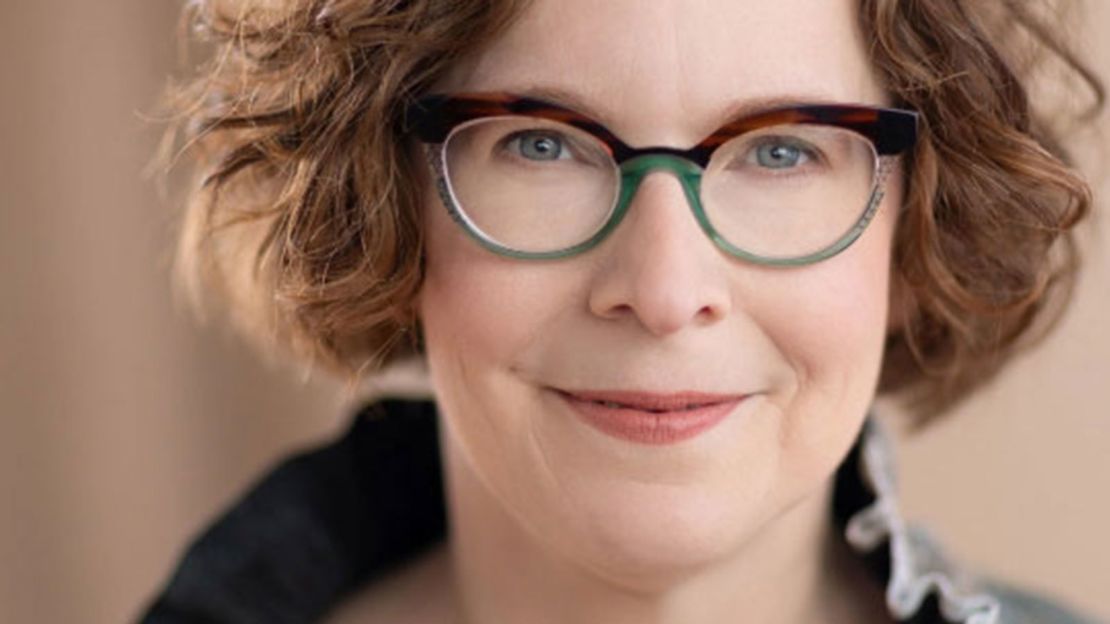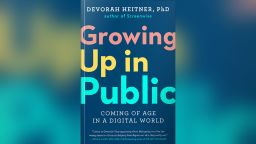Editor’s?note:?Phyllis?L.?Fagell, a licensed clinical professional counselor and nationally certified school counselor, is the author of “Middle?School?Matters” and “Middle School Superpowers.”?
Parents and other caregivers hear that?social media wreaks havoc on a teen’s self-esteem. But kids often tell us?that it helps them find like-minded friends and boosts?their emotional well-being.
So, which is it? I’m a school counselor, and I often see it’s a mix of the above. And I promise you that adults can help kids make smart choices online that keep them safe and preserve their self-esteem.

Easier said than done, right? While it may seem counterintuitive, surveilling kids’ movements, tracking their grades and scouring their online conversations can do more harm than good, argues Devorah Heitner, author of the new book “Growing Up in Public: Coming of Age in a Digital World.”
CNN spoke to Heitner, whose book provides a pragmatic and empathetic road map to raising kids in today’s volatile and hyper-connected world. She helps caregivers learn to mentor rather than monitor their children.
This conversation has been lightly edited and condensed for clarity.
CNN: The paradox of social media is that kids can be hyper-connected yet lonely. How can parents help their children use technology in ways that preserve their self-esteem?
Devorah Heitner: A big area of confusion is the difference between a friend and a follower. When I was a kid, I could see I wasn’t at the cool lunch table. I only had three friends, but I wasn’t walking around with the number “three” emblazoned on the back of my backpack.

Kids today feel like they need to say yes to more followers, yes to more group texts — because those numbers are so public. A real friendship is reciprocal — a follower just presses a button.
We need to help kids understand that the quality of the relationship is more important the quantity of “followers.”
CNN: You don’t believe there’s one “right” age when a kid is ready to use social media. What questions can parents ask to gauge their child’s readiness for social media?
Heitner: Ask questions like, “Who are you seeing here? How is it making you feel? What can you do differently if it’s not making you feel good? What can you do if a conflict comes up?”
One thing that can help is make sure kids have a good handle on texting, including how to handle group text drama before adding a social app. Ideally, only add one social app at a time. Consider how to add contacts mindfully as well.
CNN: Parents can find it hard to understand why their child wants to spend so much time using a specific app that leaves them feeling left out or “less than.” What’s motivating kids??
Heitner: It’s hard to not be where your friends are and feel like you don’t know what’s happening. If your kid is constantly feeling awful, maybe you want to get more positive people into your algorithm, take a weekend off or take a particular app off a device.
We want kids to balance their time on social media with in-person time with friends and restorative activities. Helping around the house and contributing to your community as a volunteer can be a good antidote to feeling competitive about why you have 300 followers and your friend has 2,000.
CNN: You spoke to lots of kids for your new book. What do they wish their parents understood?
Heitner: Kids feel very surveilled. They worry about getting taken out of context and canceled. Grading apps cause a lot of strife at home. Sometimes parents see their grades before they do. Or even text them at school to say, “Why did you get this grade?” Over-checking grading apps can really hurt trust between kids and parents and undermine relationships with teachers, too.

They also feel a lot of pressure to look perfect. Having good boundaries about sharing our kids’ photos can help them relax and is a great reminder to them to have good boundaries with peers. Asking permission before we share sets a great example and reminds them to ask their friends for permission before sharing their photos.
CNN: Many parents like to share pieces of their kids’ lives online. Is that OK?
Heitner: When kids are young, parents have to be careful not to craft a narrative on social media that their kids feel they have to live up to. We don’t want them to get caught up in likes on our social media by saying things like, “Look how many people liked your gymnastics routine.” We also don’t want them to feel like they can’t walk away from being, say, this big lacrosse player.
We don’t want our kids to crowdsource their personality when they’re older — to share more of what gets them likes and lose sight of who they are. Also, their personal stories — like a medical diagnosis, a setback or a challenge — are theirs to share. Things can get back to classmates that are shared by parents, and kids can get teased, so best not to share things that can be used against your kid.
CNN: Parents are sometimes surprised to discover how much personal information their children are divulging online. Is there a generational disconnect?
Heitner: This is a place we can learn from our kids. We want to make sure we don’t bring our own values to what our kids share. When I was a teen, I got the memo that seeing a therapist was stigmatized. I love that now some kids will even share tips on managing anxiety that they get from their therapist. I love that they’re sharing out about things like LGBTQ+ identities or neurodiversity.
It can be hard to watch our kids be on the front line of sharing those things — and in some communities it can be dangerous — but we want to temper our nervousness with the idea that kids are changing the culture with their openness.
CNN: Should parents ever pay attention to what their kids are talking about online?
Heitner: We don’t want to over surveil. There’s a level of support and mentorship that’s important.?If you’re reading your high schooler’s texts every day, that’s too much. Recognize you want to be learning about your kid from talking to them, not getting all this data about them. Be the person your kid can talk to, rather than the person who is tracking their every move.
CNN: Are there times when parents should monitor their kids’ posts and texts??
Heitner: If there is an imminent threat of self-harm, or harm to others, then safety is more crucial than privacy, but don’t snoop out of curiosity. What’s appropriate depends on a kid’s age and level of experience and how it’s going. With a younger kid, you can start with collaborative monitoring, where they’re showing you what they’re posting, maybe every couple of days or once a week if it’s super new to them. Over time, maybe they ask you for support when they’re unsure about a post, but you won’t be checking on your own, unless there is a very dire concern for your child’s safety.
CNN: It can feel scary to raise kids today. How can parents keep their children safe without surveilling them??
Heitner: Make sure you are the person they can talk to even if they did something they regret and that they know you wouldn’t approve of — like sending a nude. And resist the impulse to share mistakes that teens make. Talk to a kid directly, but don’t share or amplify their errors.
We also can refuse to add to the online pile-on against someone who made a mistake online. If someone posts something troubling and offensive, it could be old or taken out of context, and by piling on, we’re amplifying the harm.
CNN: Even kind, well-meaning kids make poor choices online. If a parent sees this play out, what should they do??
Heitner: Ask kids questions like, “What kind of friend do you want to be?” Or “do you see how someone might take this the wrong way? What are other ways to back out of the relationship?”
Social apps get us where we’re vulnerable, and we need to retain our humanity in the midst of all this noise. We need to remind kids there are other human beings on the other end of these interactions; you’re not just mashing a keyboard.
Kids are doing a better job than we think in many cases. Many kids are doing a good job curating their feed, and they’re participating in ways that are healthy and pleasurable.
Sign up for CNN’s Stress, But Less newsletter.?Our six-part mindfulness guide will inform and inspire you to reduce stress while learning how to harness it.





